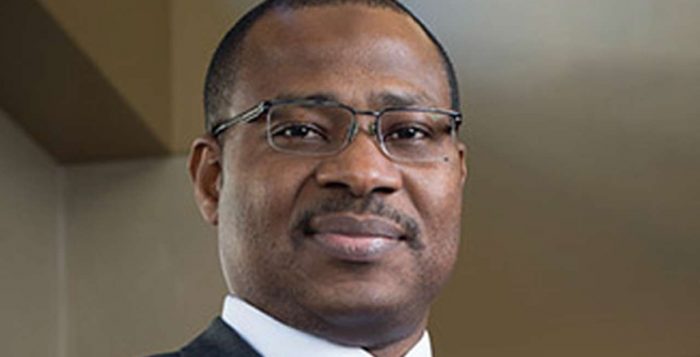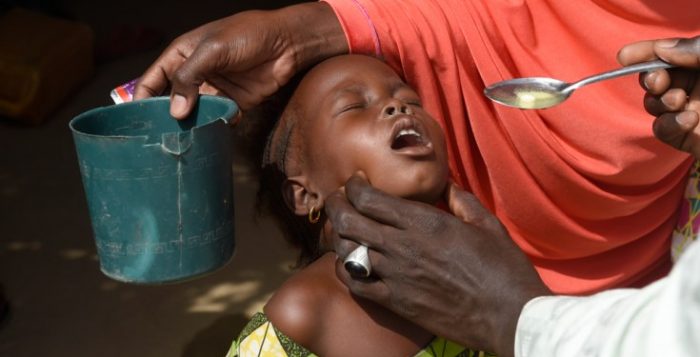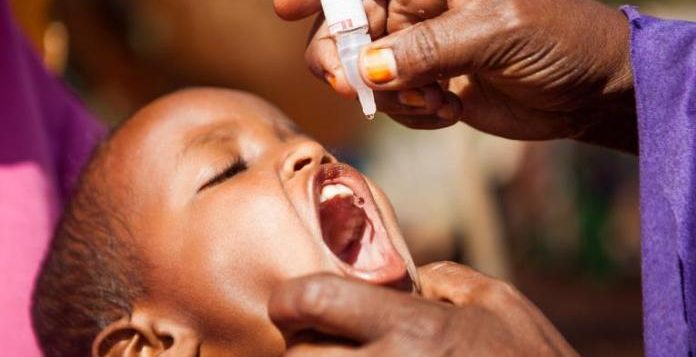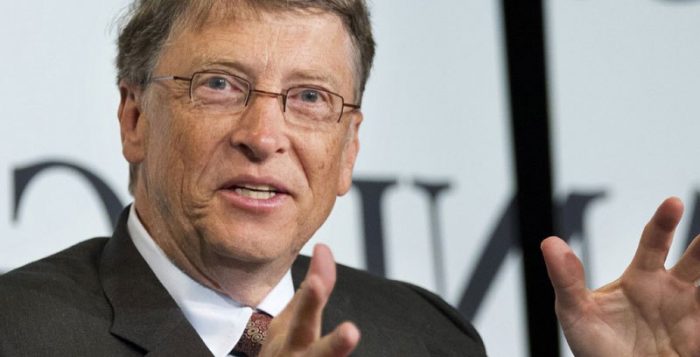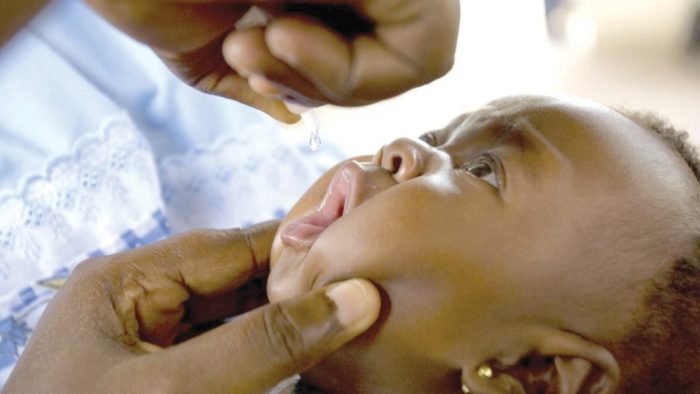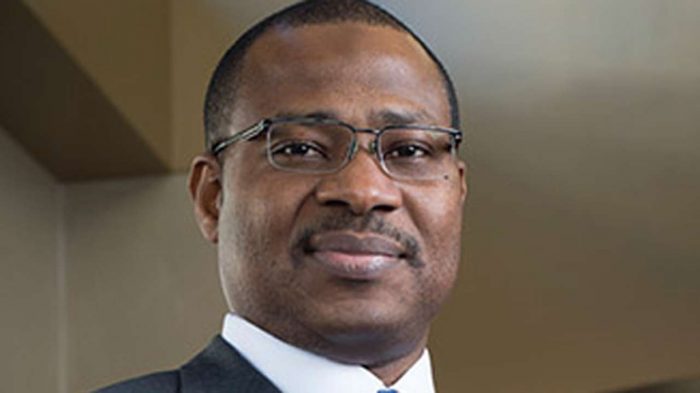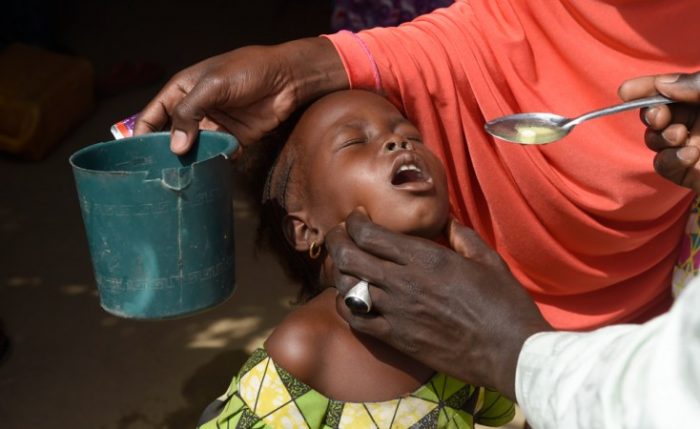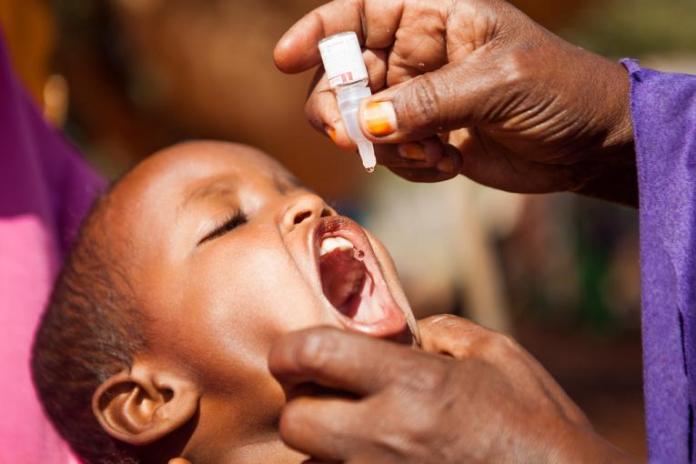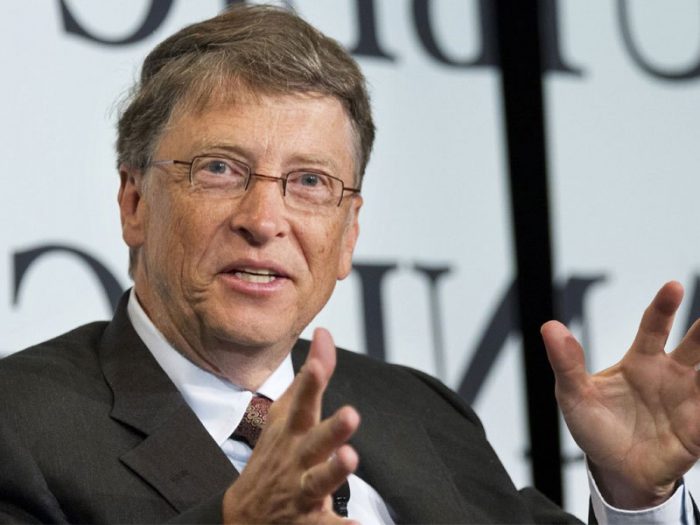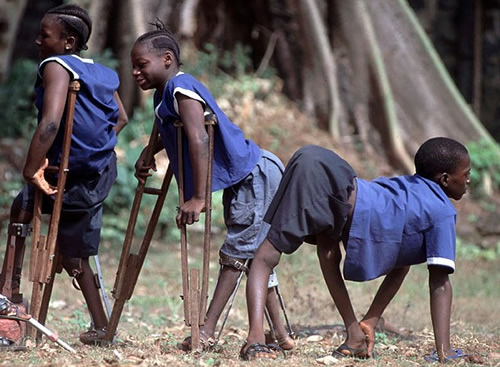Nigeria and indeed the African continent was on Tuesday August 25 certified Wild Polio Virus (WPV) free by the World Health Organisation (WHO). Although the virus that once paralysed tens of thousands of children has been ‘eradicated’ on the African continent, a minor strain, circulating Vaccine Derived Polio Virus (cVDPV), still infects hundreds.
Africa announced that it has stamped out wild poliovirus after a three-decade campaign against a disease that once paralysed 75,000 children on the continent every year.
The achievement is a major step toward ridding the globe of the virus that causes the disabling and sometimes deadly disease of polio.
Nigeria was in 2015 removed from the list of countries endemic to polio that is still reporting cases leaving only Afghanistan and Pakistan.
Nigeria’s documentation to be declared polio free was on Thursday, June 18, 2020, accepted by the African Regional Commission for the Certification of Poliomyelitis Eradication (ARCC). The implication of this is that Nigeria has gone through the final process of Wild Polio Virus (WPV) eradication and certification and was officially declared WPV free by the WHO on August 25, 2020.
Indeed, Nigeria recorded this breakthrough in polio elimination despite the activities of Boko Haram and the significant increase in Wild Polio Virus type one (WPV1) cases globally in 2019.
The feat is significant in the face of many challenges including the poor access to children in some parts of the country due to insecurity, poor health seeking behaviour of Nigerians, vaccine hesitancy, malnutrition, poor sanitation, and inadequate funding for Primary Health Care (PHC), especially at State and Local Government Area (LGA) levels.
Nigeria made history on August 21, 2019, when she achieved three years without a case of WPV. The last WPV case was isolated in a child in Borno State on August 21, 2016.
The polio-free certification was after careful assessment of the risk of missed transmission in inaccessible areas of Borno, and other countries in the region where there is lack of confidence in surveillance.
The WHO, for the first time on September 25, 2015, delisted Nigeria from the polio-endemic list after interrupting transmission for 12 months beginning from July 24, 2014. Unfortunately, 25 months later, on August 21, 2016, another case of WPV was discovered.
The country’s giant strides in the area of polio elimination was credited to an incredible resilience within the National Primary Health Care Development Agency (NPHCDA) rank and file to fight any outbreak; and the country is now four years without any case of Wild Polio Virus (WPV) and was certified polio free officially, by the WHO, on August 25, 2020.
Dr. Faisal Shuaib, a medical doctor and public health specialist, is the Executive Director (ED)/ Chief Executive Officer (CEO) of the National Primary Health Care Development Agency (NPHCDA) Abuja.
Shuaib in an interview with The Guardian among other things said the Coronavirus disease (COVID19) pandemic had brought very challenging situations in the entire health systems and economies of nations including Nigeria and this has also affected the Polio Eradication Initiative (PEI) efforts in all countries.
What is the significance of the Nigeria being officially certified polio free by the WHO? Shuaib said: “This is indeed an historic day, a day of triumph in our close to three decades of fight against polio, and very significant for Nigeria because we have been removed from the list of countries still circulating WPV and therefore we have restored our pride of place in the committee of nations.
“It also means that sacrifices we have made as a nation for close to thirty years and the huge resources we have committed jointly with our partners in the fight against polio has not been in vein. It is also significant that President Muhammadu Buhari has delivered on his promise to deliver a polio free Nigeria.”
On how the country was able to achieve this feat despite all the changes especially the security challenges in northern Nigeria, the NPHCDA boss said: “We got the right resources from government and development partners, we got the right support from Mr. President, the Honourable Minister of Health (HMH), the state governors, Nigerians, and we got full alignment and support from our traditional leaders especially the Northern Traditional Leaders Committee on Polio Eradication Initiative (PEI)/Routine Immunisation (RI)/Primary Health Care (PHC) led by His Eminence the Sultan, Alhaji Muhammad Saad Abubakar, we got the right support also from our security agencies, we also got the right people in our agency in the in the right places at the right time.”
On the fear of possible resurgence of WPV, Shuaib said: “Yes our great country was almost WPV free in 2016 when we had resurgence of cases from among the trapped children in the insurgency ravaged northeast zone. Therefore the fear of resurgence is real and we have taken a number of steps to prevent this. Deepening our collaboration with the military and security Agencies to expand access to these children is one, and our innovations to reach inaccessible children in all the settlements in these areas is another. We are also determined to maintain our watertight Acute Flaccid Paralysis (AFP) surveillance in Nigeria through application of technology to improve detection of cases in all areas in order not get any surprises.”
On what is being done to ensure that the country remains polio free, the public health physician said: “We will continue our current drive at strengthening Routine Immunisation (RI), which is a key component of polio eradication and is yielding very positive results. We will also maintain our certification standard AFP surveillance system all of which will be sustained under a very strong, revitalized Primary Health Care (PHC) system, which is the main focus of this administration to be able to achieve Universal Health Coverage for all Nigerians. We are also putting a very strong surveillance at our borders and crossing points – sea land and air to ensure that individuals coming from polio endemic countries are fished out and vaccinated in order to prevent importations of all forms of polio viruses.”
How about the issue of circulating vaccine-derived polio virus (cVDPVs) that continues to exist? What is the implication for the quest to eliminate polio globally? The epidemiologist said: “Nigeria is currently surrounded by countries with cVDPVs, for over six months now we have had cases, the last case in our country was January 2020, which is as a result of challenges with the environment, where children who have been vaccinated with Monovalent Oral Polio Vaccine Type2 shed the viral particles in the environment which now interact with other pathogens and becomes virulent especially when children that have not completed their RI got infected. These aren’t part of the process for WPV certification and our great Agency is committed with other partners to address the environmental challenges and stop the circulation of CVDPVs.
“The fact is there is still Afghanistan and Pakistan circulating WPV and therefore the risk of importations is still there in all countries globally so we will ensure as I mentioned that all persons coming from endemic countries are vaccinated through our special interventions strategy of polio vaccinations at borders and crossing points.”
On the relationship between polio and COVID-19, Shuaib said the relationship is that they are viral illnesses and structurally they look similar, their modes of transmission clinical manifestations and infectivity or rate of spread are very different. He said COVID19 spreads much faster and affects individuals of all ages and the pandemic had brought very challenging situations in the entire health systems and economies of nations including Nigeria. He said this has also affected the Polio Eradication Initiative (PEI) efforts in all countries.
Shuaib said the situation therefore calls for urgent measures to stop the ravaging effects of the COVI19 infections in Nigeria. “We as an Agency had to develop and emergency COVID19 preparedness and response plan for PHC health facility and community levels, we had to develop COVID19 training manuals for preparedness and response at PHC and community levels within a very short span of time. Currently we are training more than 200,000 frontline PHC worker and community volunteers to be able to have the requisite knowledge to deliver the continuum of package of PHC services and prevent the already happening community transmission of COVID19 in all the states of the federation. We are also ensuring that PHC workers are kitted with basic Personal Protective Equipment (PPEs) to be able to provide services in all our PHC centres; these include polio vaccinations,” he said.
Shuaib said the greatest challenge they face in the COVID19 pandemic is delivery of PHC services including polio vaccinations. “Health care workers (HWs) are vulnerable and are afraid of clients and clients are afraid of HWs for contracting COVID19 infections but what we have done as I have already highlighted has restored confidence in the system,” he said.
The public health physician recommended that Nigerians should strictly adhere to COVID19 Infection Prevention and Control (IPC) guidelines in order to break the cycle of transmission and flatten the curve, as the country might be approaching another high transmission season.
On concerns that vaccine phobia is setting in again worldwide even in Nigeria, Shuaib said it is deeply concerning that Nigerians have started pushing back and resisting on the issue of COVID19 vaccine even before trials began in some countries due some fear on the imaginary conspiracy theories that have been debunked. Generally vaccine phobia has been around for a very long time and we will continue to engage segments of society to address the fears of our people as we have always done for other vaccines that protects people from vaccine-preventable diseases (VPDs).
On why Nigeria is not part of the ongoing clinical trials of COVID-19 vaccines just like Egypt and South Africa, Shuaib said there is a laid down process for clinical trails for any vaccine or therapeutic product and FMoH is handling that issue and they will let Nigerians know when the process is completed.
WHO’s director for Africa, Dr. Matshidiso Moeti, on Monday, said: “Future generations of African children can live free of wild poliovirus.” He said 1.8 million cases of polio-related paralysis had been prevented over the past 24 years.
But, according to a report published in New York Times, the victory has a hollow note.
Every year, hundreds of people across Africa are still being infected with circulating vaccine-derived poliovirus, which can infect people in areas where there is only partial vaccination. African cases of the vaccine-derived strain, which results in the same symptoms as the wild kind, increased to 320 last year from 68 in 2018, and could rise again in 2020 because many vaccination campaigns were paused during coronavirus lockdowns.
The polio-free certification applies to what the WHO calls the Africa region — one of its six global zones of operation — and it excludes North Africa. But no North African country has recorded a case of wild poliovirus since 2004, so the whole continent is now considered free of it.
The 46 presidents of the region (there would have been 47, but the president of Mali was recently deposed in a coup) celebrated along with supporters of polio eradication efforts; among them the Microsoft founder Bill Gates and the Nigerian billionaire Aliko Dangote, on a video conference call on Tuesday.
The United States has been free of wild polio since 1979. The Global Polio Eradication Initiative started in 1988, with the aim of eradicating polio worldwide by the year 2000.
Nigeria was a major sticking point on the African continent. After northern Nigeria boycotted the vaccine in 2003 because of rumors about its safety, an outbreak there spread to 20 countries in five years.
A huge effort was initiated to change minds about the vaccine, and by 2015, it seemed that the situation was under control and rumors sufficiently squashed. But then, in 2016, four new cases of wild poliovirus were reported.
The state they came from, Borno, in northeastern Nigeria, was the site of a vicious insurgency by the extremist group Boko Haram, and getting to the people living there was extremely difficult, both because of the danger and because the Nigerian authorities frequently denied access for aid workers.
But after the four cases surfaced, the global health infrastructure swung into action. Nigeria’s president instructed the military to work with the vaccination teams. A mammoth effort began, using satellite imagery, data analysis and daring methods of getting to seemingly impossible-to-reach children.
WHO’s polio eradication coordinator for the Africa region, Dr. Pascal Mkanda, said: “There’s no program like the global eradication program. There’s no program which uses so much data, so much innovation.”
When the military told them an area was safe, they would start a campaign there within 48 hours. More than 800,000 children were vaccinated this way in 2016. Others were vaccinated at markets on the edge of Boko Haram-occupied territory, when they came to buy provisions. When they went back to their communities, Mkanda said, the vaccine went through their digestive systems and out into the environment, and other children, who had not been inoculated, could then pick it up and also become immune.
Circulating vaccine-derived poliovirus spreads in the same way, except that the virus mutates over time and causes polio.
For example, say vaccinators go to a village to inoculate children.
The children line up by the church or market and get some drops squeezed into their mouths. The drops include a live but weakened version of the virus, which attaches to receptors in the intestines and is absorbed. The weakened virus cannot cause paralysis but teaches the child’s immune system to create antibodies that will fight the real thing if it were to come along.
If some children do not get the message that day, or their parents distrust the vaccine and keep them home, or the vaccinators have to leave early, they may still benefit. If any stool from vaccinated children contaminates local drinking water — or even a puddle that a child might splash in and then ingest — the virus can immunize other children, too.
Very rarely, however, the vaccine virus can mutate back into something resembling the wild kind. If that vaccine-derived mutation keeps spreading because nearby villages are not fully vaccinated, it can, in a few cases — about one infection in 200 — paralyse people.
The name of the polio strain may give the impression that people contract it from vaccinations, but that is not the case.
Director of the Vaccine Confidence Project at the London School of Hygiene and Tropical Medicine, Heidi Larson, said: “It is not very well-named.” There has been talk of altering the name to something less misleading, she said, but any change would probably take too long.
While there has been success in Africa, there has been an increase in cases of wild poliovirus since 2018 in Afghanistan and Pakistan, where vaccinators are threatened with violence, and often killed.
Moeti said: “We need to look immediately at the most difficult circumstances, the most disadvantaged people, the most vulnerable people, the hardest to reach people — because that’s where we end up with the struggles at the end.”


